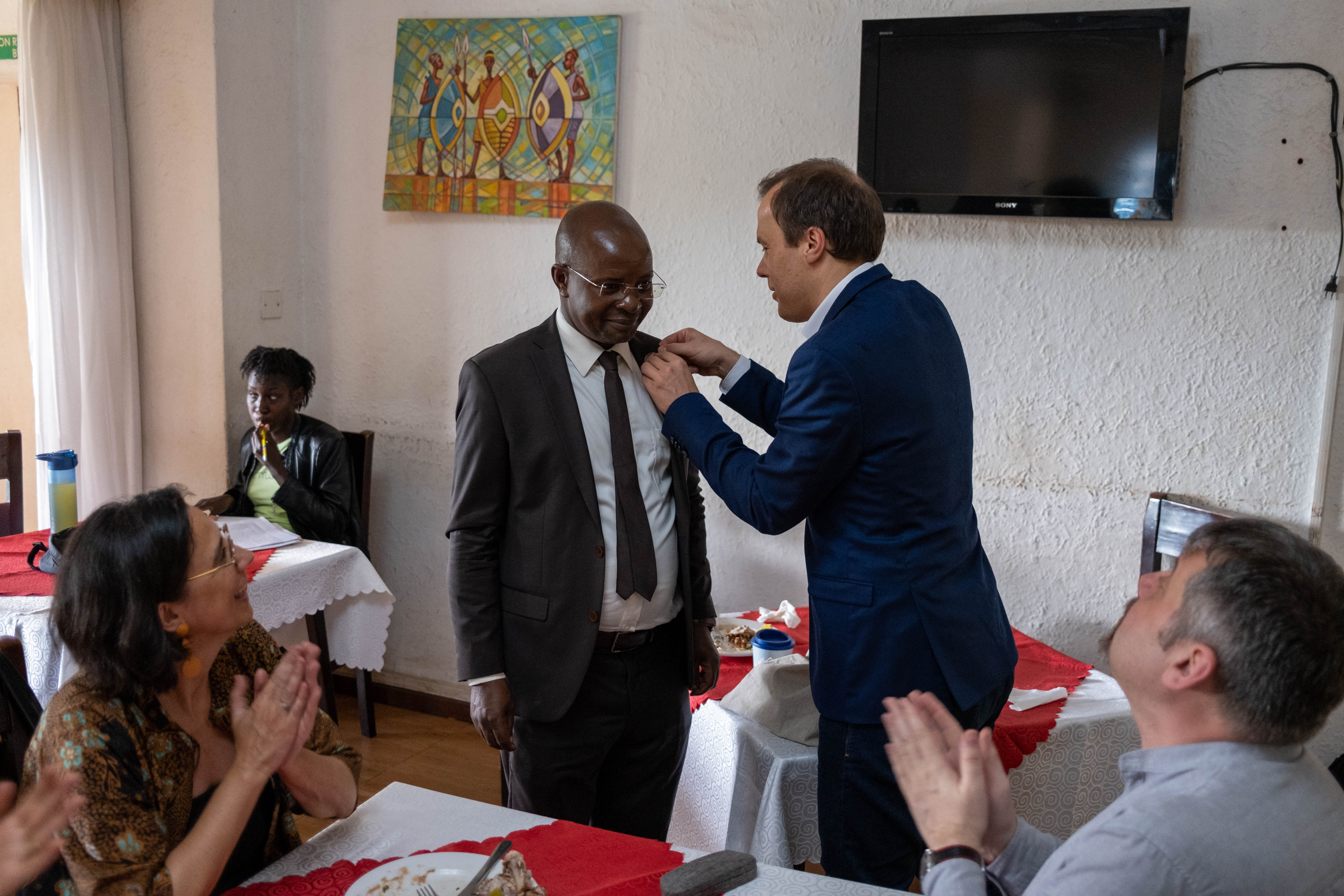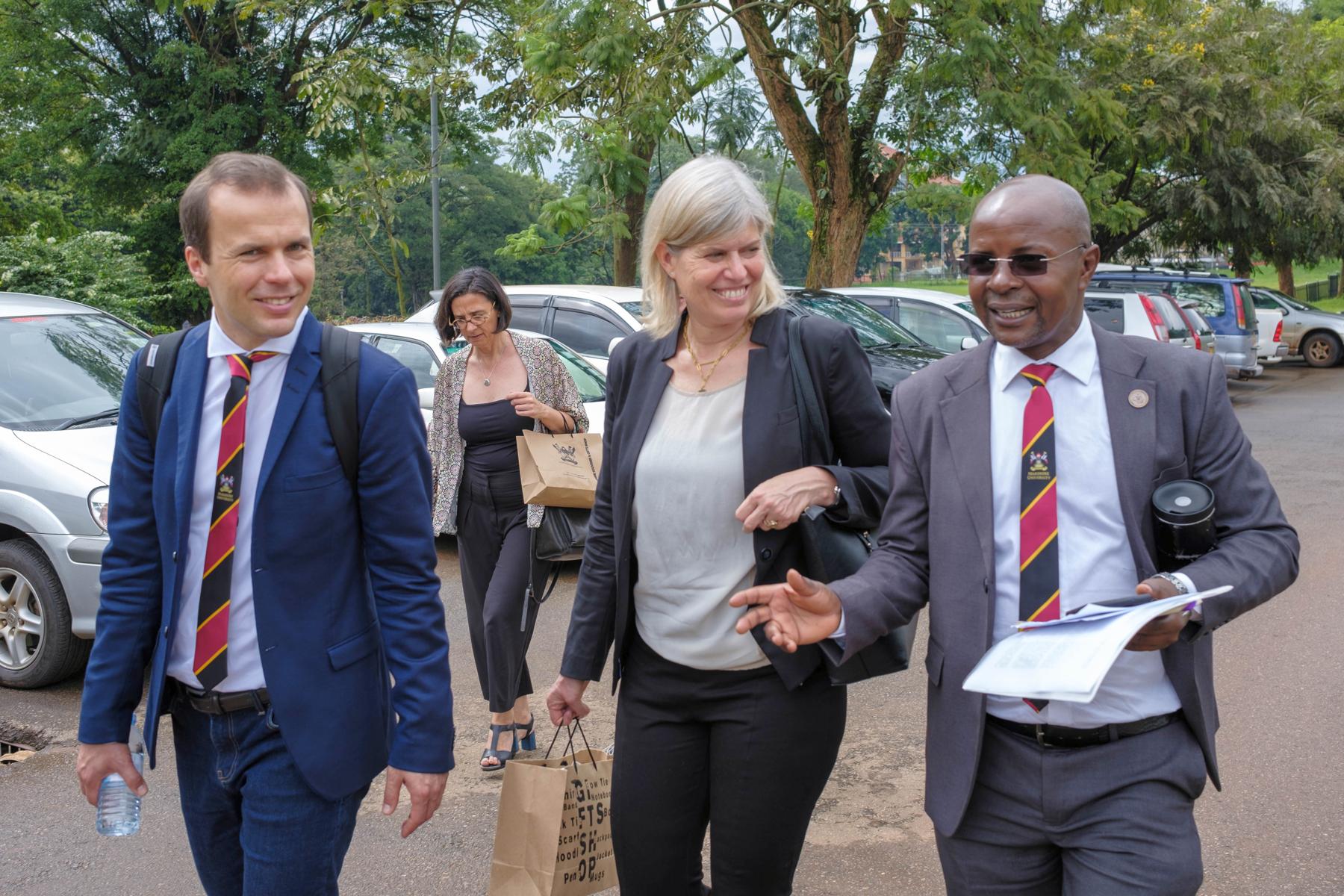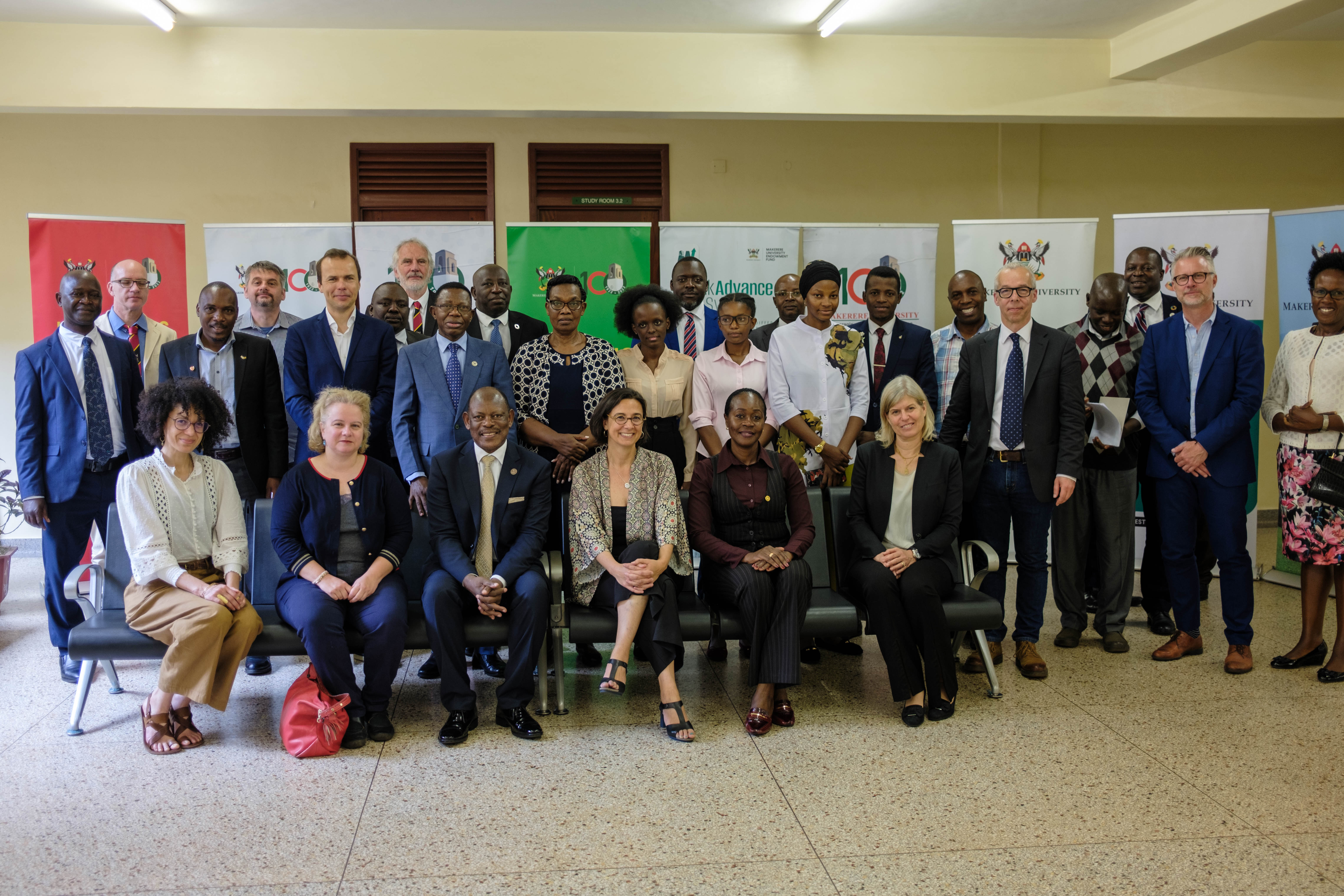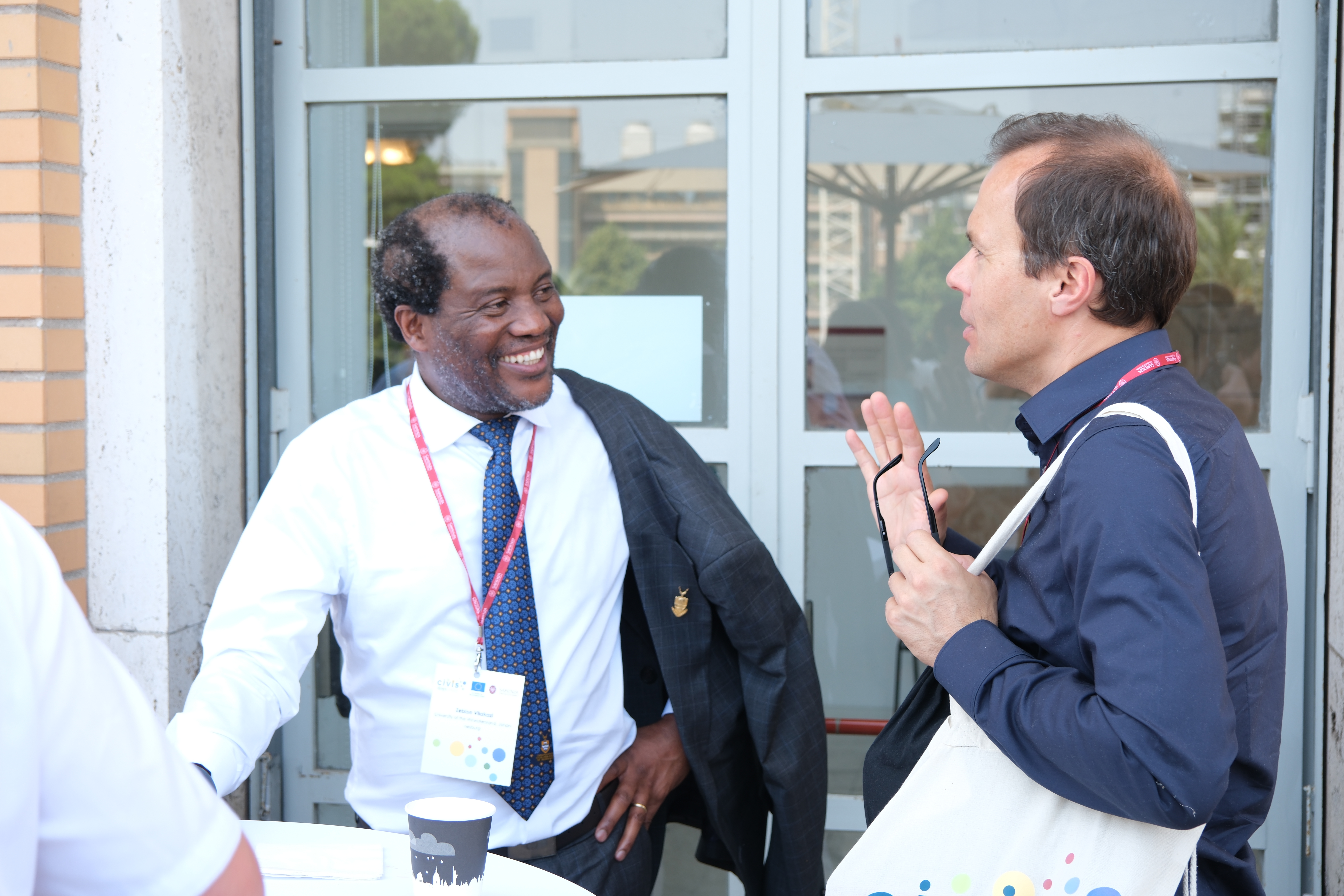Christian Möllmann: A "civizen" linking European and African universities

In 2022 CIVIS signed the cooperation agreement with its partners in Africa – from Tunisia and Morocco via Senegal and Uganda to Mozambique and South Africa. From an early stage, Christian Möllmann (University of Tübingen) was involved in the search for suitable partners.
After considering weighted criteria – including existing partnerships with CIVIS members and how well the candidates fit the focuses of the alliance, the CIVIS Hubs – six universities were finally put on the wish list. “We were delighted that they all accepted the invitation to form a strategic partnership”, recalls Möllmann, who sees himself as a link between the universities on both sides of the Mediterranean.
Now, the challenge is also to represent the interests of the new members on CIVIS committees and to involve them in all existing fields of work, “regardless whether we’re putting together a call for research projects or a new study programme”, explains the officer. He regards the cooperation as “equitable partnerships in an unequal world”:
It’s clear that we each bring with us different capacities and strategic areas and live in an unequal world. But our partners sit alongside us at the table and are involved, and we try to communicate and decide on all activities on an equal footing”.
How it works
After the partnership agreement was signed, a CIVIS delegation toured all six universities to get to know them in depth and introduce the alliance. “That led to many, many contacts which I’m benefiting from now”.

But further business trips to Africa are rare, says Möllmann with mild regret, as resources are limited. So he mostly maintains contacts online, holding regular meetings with representatives of the African member universities.
However, as a member of central CIVIS committees, he frequently goes on business trips within Europe. And since representatives of the African partner universities increasingly take part in CIVIS activities in Europe, he finally does meet them here.
Funding for European-African research projects
Above all, the Global Partnerships Officer wants to network lecturers and researchers who are aiming to build up European-African collaborations. Möllmann helps drive the development of third-party-funded projects and find appropriate sources of funding, “because we have the major problem that we can’t use the CIVIS budget from the EU directly for our African partners”.
- New projects can be supported with seed money. For example, the PolyCIVIS network, which aims to promote dialogue between countries and cultures has arisen from the EU’s Jean Monnet programme. It enables all the members of CIVIS and four other universities in Africa to discuss the polycrisis – climate change, economic and social inequality, environmental destruction – and how to overcome it.
- To date, over 100 students from Africa have been able to take part in Blended Intensive Programmes (BIPs) using Erasmus funding that was specifically requested to enable the mobility of the African partners. African professors have also taken part in roughly 30 BIPs already, and the first BIP offering a week on-site in Africa took place at the end of July at the University of Witwatersrand (WITS) in Johannesburg.
African members are also integrated into the degree programmes developed within CIVIS – here Möllmann highlights the new Master’s ‘EUROSUD’ on Southern European studies and the Master’s in Palaeolithic Archaeology, which incorporate, among others, the Hassan II University of Casablanca and WITS. Future courses will be developed jointly from the ground up.

The African partners are especially goal-oriented in the cooperation, Möllmann comments. Since they cannot benefit directly from the EU funding for CIVIS - for instance by creating jobs - they do not have the same capacities for CIVIS activities as full members. “Our colleagues there do everything on top of their regular jobs”, says Möllmann.
The additional work involved with the EU funding is hardly an issue to them: instead of the sometimes complex project management and reporting, their focus is more on the creation of concrete possibilities for their members, whether in relation to mobility, research cooperation, or capacity building. They also hope for contributions from CIVIS, such as for the development of digital infrastructure or in doctoral education.
At the same time, the partners in Africa bring a lot of new ideas to the European members of CIVIS. “Our African members are very strong in social engagement”, says Möllmann. The Hassan II University of Casablanca, for example, is engaged in urban development and the digitalization of public space; at WITS, service learning is integrated in most degree programmes. “The European partners can learn a lot from this!”, he underlines.
Last but not least, the opinion of African partners of global challenges is important.
Researchers at the university in Sfax, which is situated on the Mediterranean in Tunisia and is regarded as a ‘migration hub’, can contribute immediate experiences of migration flows from Africa to Europe”.
Flexibility and spontaneity: skills to reach the goal
It is the rich exchanges and the socially relevant themes that keep Christian Möllmann attached to his job. Above all, he values the cooperation with completely different people in an international setting. “The fact that I can indirectly promote important issues with my work is a massive motivation”.
Keeping the major objectives in mind also helps to overcome barriers: “You have to have stamina and staying power. Working to integrate associated members in CIVIS is a long-term project for us, and we must not be put off by individual setbacks and problems”.
Möllmann has also learned to reconsider his own work methods. “Although my original cultural background tends to be more northern European, I can see that flexibility and spontaneity are also important and often necessary to achieve the objective”.

Not least, Christian Möllmann has refined his view of Africa: “Even if it’s convenient to speak about our ‘African partnerships’, we must never forget that Africa isn’t a country. I only really experienced what that means through CIVIS. The diversity is massive and can be seen in our member universities”.
Möllmann hesitates to say whether there will only be six partners on the African continent in the long-term. That has to be discussed and decided by CIVIS’ committees, he says, but he won’t rule out the possibility of the alliance expanding. “After all, I’m the Global Partnerships Officer and not the African Partnerships Officer”, he concludes with a smile. Openness in every direction is, in the end, the key to CIVIS.
Interview by Tina Schäfer, UT
Latest Highlights:
Aix-Marseille Université hosted the celebration of "25 Years of Téthys network"
European Round Table at UNIL, tackling Joint Doctoral Programmes
Stockholm Declaration on Chemistry for the Future, launched during the Nobel Symposium
University of Salzburg founds international Stefan Zweig centre
The “Health City of the Community of Madrid” coming to life with UAM
